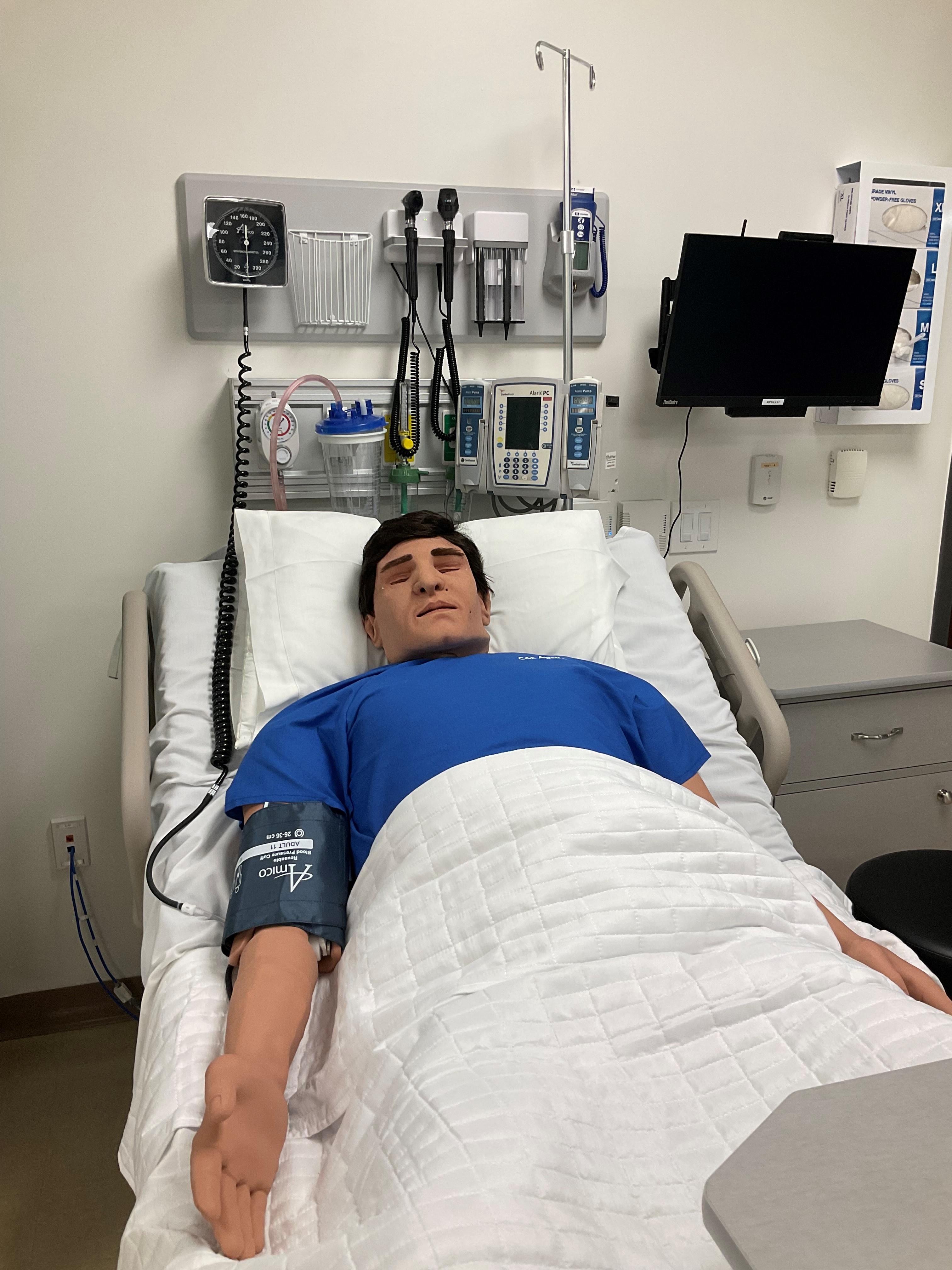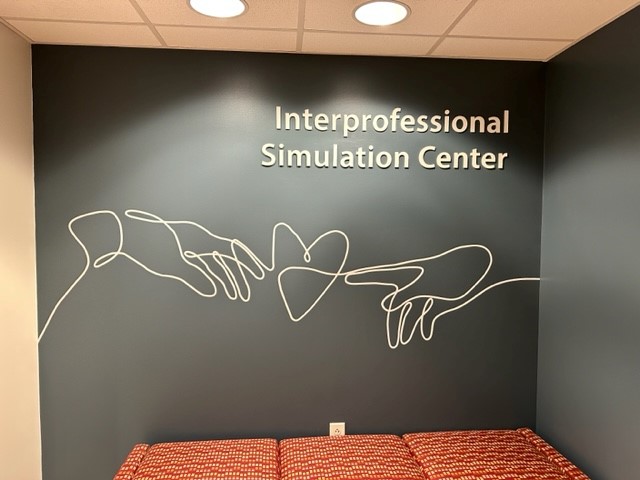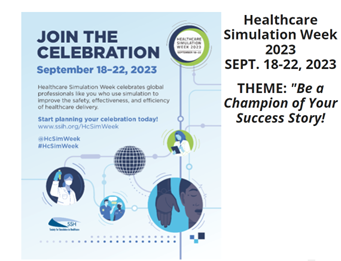The Interprofessional Simulation Center in the School of Health Sciences is joining the global celebration of Simulation in Healthcare Week from Sept. 18 to 22.

Each year, simulation centers worldwide pause to celebrate the experiential learning experiences offered through several different simulation modalities. This year’s theme is “Be a champion of your success story.”
The Interprofessional Simulation Center (IPSC) at Elon offers five different simulation modalities: standardized patients, medical mannequins, task trainers, mixed reality and clients-to-class. While each modality is delivered in multiple ways and combinations, they all provide a hands-on learning experience for our students in nursing, physician assistant studies and physical therapy.
“Standardized patients, with their diverse backgrounds and personal healthcare experiences, bring a unique perspective to our learning journey. They not only challenge us to think critically but also remind us of the human element in healthcare, reinforcing the importance of treating each patient with dignity and respect,” said Physician Assistant candidate Catie Ingland G’24
Samantha Vaz ’24, an ABSN student, said she loves the standardized patients that come in to help the students learn.

“Being in the nursing world it is very important to have therapeutic communication and being able to practice this skill. I learn best when I can talk to a real human, and they are able to give me feedback on what I need to work on. The standardized patients come in and make the scenario seem so real which is super helpful for me,” Vaz said.
Nita Skillman, director of the Interprofessional Simulation Center, and Bethany Fearnow, simulation coordinator, are both certified simulation educators and have devoted their careers to bringing medical textbooks to life.
The center staff enjoy watching the novice learners work through health care scenarios, advancing their knowledge to reach clinical readiness. The center is also seeking accreditation with the Society for Simulation in Healthcare in order to gain national recognition of the center’s work and uphold simulation best practices.



